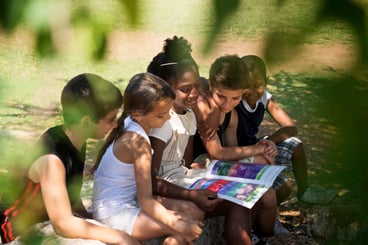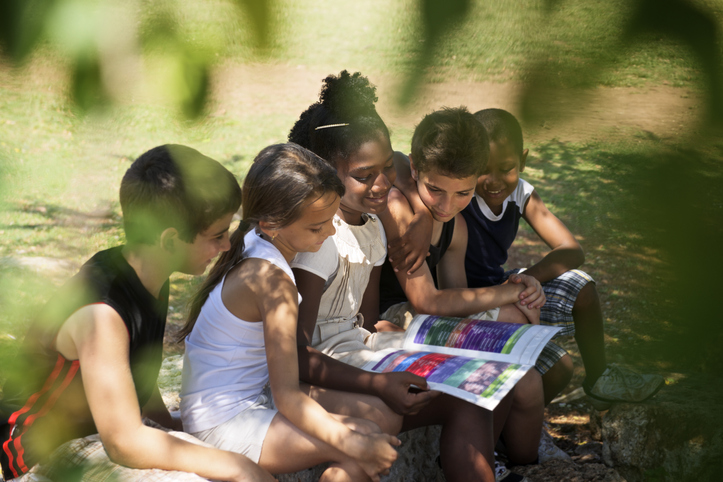 With school out for the summer, reading may not be the first activity that comes to mind when thinking of summer fun. But amid the pool days, cookouts and other summer fun, reading over summer break can provide plenty of benefits. SummerReading.net lists these six:
With school out for the summer, reading may not be the first activity that comes to mind when thinking of summer fun. But amid the pool days, cookouts and other summer fun, reading over summer break can provide plenty of benefits. SummerReading.net lists these six:
- Improve reading skills
- Increase desire to read
- Improve self-esteem
- Neutralize summer learning loss
- Improve comprehension
- Improve memory skills
So, how can you get your children involved in summer reading? In other words, how can you make it fun? What’s most important is that you find age-appropriate (and reading-level appropriate) ways. Come up with an idea that’s too complex and younger children won’t benefit. Make it too low-level and older kids will likely get bored. So, take these seven suggestions and right-size them for your children.
#1 Pay Attention to How You Talk About Reading
Scholastic.com suggests that positioning reading as a reward, rather than a chore, can go a long way in helping children to enjoy the experience. Compare these two statements:
- “Hey! After lunch, we get to read a book!”
- “Once lunch is over, you have to read.”
Which one would motivate you more? Kids are no different!
The article also suggests that you create a fun atmosphere for the reading experience. One mother, in the evening, turns off the lights and gives her child a flashlight to make bedtime reading exciting. Or you can set up a hammock that a child can swing on outside while summer breezes blow — and have that be their special reading spot.
#2 Read the Same Books With Them
When you do this, you can then become, as one mom tells Scholastic, your “own little summer book club with ice cream cones.” You can read newly published books together or share your own childhood favorites with your kids.
#3 Explore Summer Reading Programs
Libraries often offer summer reading programs with reward systems built in. Simply type “summer reading programs near me” and you may be amazed at all of the options that exist. While at a library, if your child doesn’t already have a personal library card, this could be the right time to get one.
#4 Listen to Your Kids’ Opinions
As ReadBrightly.com pointed out, children like to share their opinions. After they read a book, you can ask them to rate it with a thumbs up, thumbs down, or something in between. Or depending upon the age of the child, they could write a book review and choose what stickers they will use to decorate the review. Ask them what they liked best and least about the book. Is there anything they would change if they were writing a book?
#5 Supplement With Activities
Look at the topic of a book your child is reading and brainstorm where you could take them — museums, parks, musical events, festivals, or somewhere else — so they could learn more about the subject in an interactive way.
If you’re in the car, ReadingPartners.org suggests asking your child to read the map. Ask them to read signs and billboards. If you’re going to an amusement park, your child can read a pamphlet about the place and, while there, read the signs by the rides. Be creative!
#7 Be a Role Model
When your child sees you reading and enjoying the process, this sets a good example. Make reading material readily available in your house and, if possible, read at least an hour a day yourself.






